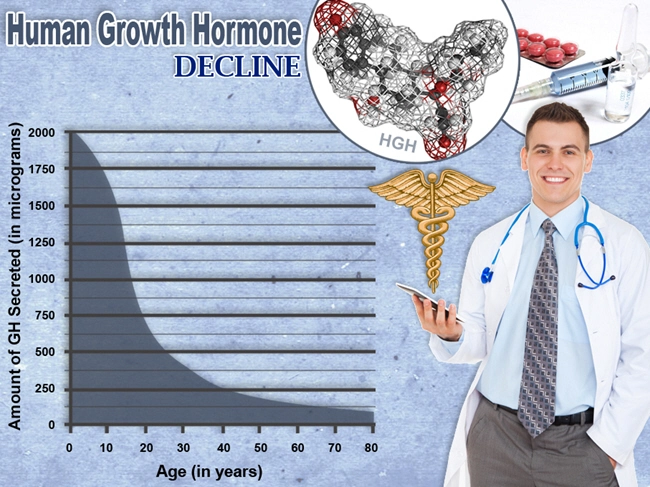
Introduction to Semaglutide
Semaglutide, a glucagon-like peptide-1 (GLP-1) receptor agonist, has emerged as a pivotal therapeutic agent in the management of type 2 diabetes and obesity. Its role in glycemic control and weight management is well-documented, yet its broader metabolic effects, particularly on lipoprotein profiles, are garnering increasing attention among healthcare professionals. This article aims to elucidate the effects of semaglutide on lipoprotein profiles, providing crucial insights for clinicians treating American males.
Understanding Lipoprotein Profiles
Lipoproteins are essential carriers of cholesterol and triglycerides in the bloodstream, playing a critical role in cardiovascular health. The primary lipoproteins include low-density lipoprotein (LDL), high-density lipoprotein (HDL), and very-low-density lipoprotein (VLDL). An imbalance in these lipoproteins, particularly elevated LDL and reduced HDL, is a significant risk factor for cardiovascular diseases, a leading health concern among American males.
Semaglutide's Mechanism of Action
Semaglutide functions by mimicking the incretin hormone GLP-1, which enhances insulin secretion, suppresses glucagon release, and slows gastric emptying. These actions contribute to improved glycemic control and weight loss. Additionally, semaglutide's influence extends to lipid metabolism, which is of particular interest in the context of cardiovascular risk management.
Impact on LDL Cholesterol
Clinical trials have demonstrated that semaglutide can lead to a modest reduction in LDL cholesterol levels. This effect is likely mediated through weight loss and improved insulin sensitivity, both of which are known to positively impact LDL levels. For American males, who often face higher risks of obesity and related metabolic disorders, this reduction can be a significant benefit in managing cardiovascular health.
Effects on HDL Cholesterol
The impact of semaglutide on HDL cholesterol is less consistent across studies. Some research indicates a slight increase in HDL levels, which could be attributed to weight loss and improved metabolic health. However, other studies have found no significant change. Clinicians should monitor HDL levels closely in patients on semaglutide, as HDL's protective role against cardiovascular disease remains crucial.
Influence on Triglycerides
Semaglutide has been shown to significantly reduce triglyceride levels. This effect is particularly beneficial for American males, who may have elevated triglycerides due to dietary habits and lifestyle factors. The reduction in triglycerides is likely a result of improved insulin sensitivity and reduced hepatic fat accumulation, both of which are positively influenced by semaglutide.
Cardiovascular Outcomes
The cardiovascular benefits of semaglutide extend beyond its effects on individual lipoprotein fractions. Large-scale clinical trials, such as the SUSTAIN and PIONEER studies, have demonstrated that semaglutide reduces the risk of major adverse cardiovascular events (MACE). These findings underscore the importance of considering semaglutide not only for glycemic control but also as a cardioprotective agent.
Clinical Implications for American Males
For American males, who are at a higher risk for cardiovascular diseases due to lifestyle and genetic factors, the use of semaglutide can be a game-changer. Clinicians should consider semaglutide as part of a comprehensive management strategy that includes lifestyle modifications, dietary interventions, and other pharmacological treatments as needed. Regular monitoring of lipoprotein profiles is essential to tailor treatment and optimize cardiovascular outcomes.
Conclusion
Semaglutide's effects on lipoprotein profiles offer promising benefits for American males, particularly in reducing LDL and triglyceride levels. While its impact on HDL remains variable, the overall cardiovascular benefits of semaglutide are clear. Clinicians should stay informed about these effects and integrate semaglutide into their treatment protocols for patients with type 2 diabetes and obesity, always with a keen eye on cardiovascular health.
By understanding and leveraging the metabolic effects of semaglutide, healthcare professionals can significantly improve the health outcomes of their male patients, reducing the burden of cardiovascular disease and enhancing quality of life.
Contact Us Today For A Free Consultation
Dear Patient,
Once you have completing the above contact form, for security purposes and confirmation, please confirm your information by calling us.
Please call now: 1-800-380-5339.
Welcoming You To Our Clinic, Professor Tom Henderson.

- The Semaglutide Revelation: Shaping the Future of Diabetes and Weight Management [Last Updated On: February 25th, 2025] [Originally Added On: February 25th, 2025]
- The Evolution of Semaglutide: A Journey from Laboratory Observations to Life-Changing Medicine [Last Updated On: February 26th, 2025] [Originally Added On: February 26th, 2025]
- Deciphering the Dynamics of Semaglutide: An Unraveled Exploration into GLP-1 Science [Last Updated On: February 27th, 2025] [Originally Added On: February 27th, 2025]
- Grasping the Metabolic Majesty: Semaglutide's Profound Influence Beyond Blood Sugar Levels [Last Updated On: February 28th, 2025] [Originally Added On: February 28th, 2025]
- Emerging Innovations: Unveiling Semaglutide as a Superior GLP-1 Agonist in 2024 [Last Updated On: February 28th, 2025] [Originally Added On: February 28th, 2025]
- Revolutionizing Diabetes Management: The Pioneering Role of Semaglutide [Last Updated On: March 1st, 2025] [Originally Added On: March 1st, 2025]
- Reimagining Diabetes Management: Semaglutide's Revolutionary Impact on Patient Lives [Last Updated On: March 2nd, 2025] [Originally Added On: March 2nd, 2025]
- Exploring Semaglutide: Its Role in Diabetes Management and Weight Loss Efficacy [Last Updated On: March 3rd, 2025] [Originally Added On: March 3rd, 2025]
- Semaglutide: Transforming Metabolic Health in American Males [Last Updated On: March 4th, 2025] [Originally Added On: March 4th, 2025]
- Semaglutide's Role in Preserving Beta-Cell Function for American Males with Type 2 Diabetes [Last Updated On: March 4th, 2025] [Originally Added On: March 4th, 2025]
- Semaglutide: Advancing Cardiovascular and Diabetes Management in American Males [Last Updated On: March 5th, 2025] [Originally Added On: March 5th, 2025]
- Semaglutide: Transforming Treatment for Diabetes and Obesity in American Males [Last Updated On: March 6th, 2025] [Originally Added On: March 6th, 2025]
- Optimizing Semaglutide Dosage for Diabetes and Weight Management: A Comprehensive Guide [Last Updated On: March 7th, 2025] [Originally Added On: March 7th, 2025]
- Semaglutide: Benefits, Risks, and Guidelines for American Men's Diabetes and Weight Management [Last Updated On: March 8th, 2025] [Originally Added On: March 8th, 2025]
- Semaglutide: Groundbreaking Tool in Obesity Management for American Men [Last Updated On: March 9th, 2025] [Originally Added On: March 9th, 2025]
- The Economic Landscape of Semaglutide: Analyzing Cost, Insurance Coverage, and Overall Value for American Males [Last Updated On: March 12th, 2025] [Originally Added On: March 12th, 2025]
- Real-World Applications of Semaglutide: Insights from Clinical Practice for American Males [Last Updated On: March 13th, 2025] [Originally Added On: March 13th, 2025]
- Unlocking the Potential of Semaglutide in Managing Metabolic Syndrome: A Comprehensive Guide for American Males [Last Updated On: March 15th, 2025] [Originally Added On: March 15th, 2025]
- Semaglutide: A Comprehensive Guide for American Males on Diabetes and Obesity Management [Last Updated On: March 16th, 2025] [Originally Added On: March 16th, 2025]
- Unlocking the Full Potential of Semaglutide: Expert Strategies for American Males [Last Updated On: March 16th, 2025] [Originally Added On: March 16th, 2025]
- Semaglutide: A Comprehensive Guide for American Males Managing Diabetes and Obesity [Last Updated On: March 17th, 2025] [Originally Added On: March 17th, 2025]
- Semaglutide: Transforming Lives of American Men Through Weight Loss Success Stories [Last Updated On: March 18th, 2025] [Originally Added On: March 18th, 2025]
- Semaglutide and Beyond: Innovations in GLP-1 Therapy for American Males [Last Updated On: March 18th, 2025] [Originally Added On: March 18th, 2025]
- Semaglutide: Lowering HbA1c and Aiding Weight Loss in Type 2 Diabetes Management [Last Updated On: March 18th, 2025] [Originally Added On: March 18th, 2025]
- Semaglutide: A New Hope for Appetite Control and Weight Management in American Men [Last Updated On: March 18th, 2025] [Originally Added On: March 18th, 2025]
- Semaglutide: A Comprehensive Guide for American Males on Diabetes and Obesity Management [Last Updated On: March 19th, 2025] [Originally Added On: March 19th, 2025]
- Semaglutide's Anti-Inflammatory Benefits: A New Hope for American Males [Last Updated On: March 20th, 2025] [Originally Added On: March 20th, 2025]
- Semaglutide: A Dual Benefit for Diabetes and Weight Management in American Men [Last Updated On: March 20th, 2025] [Originally Added On: March 20th, 2025]
- Semaglutide's Impact on Satiety Hormones for Weight Management in American Males [Last Updated On: March 20th, 2025] [Originally Added On: March 20th, 2025]
- Semaglutide: Revolutionizing Weight and Metabolic Health in American Men [Last Updated On: March 21st, 2025] [Originally Added On: March 21st, 2025]
- Personalizing Semaglutide Therapy for American Males: Dosage, Monitoring, and Lifestyle Integration [Last Updated On: March 21st, 2025] [Originally Added On: March 21st, 2025]
- Semaglutide: A Promising Treatment for NAFLD in American Men [Last Updated On: March 22nd, 2025] [Originally Added On: March 22nd, 2025]
- Semaglutide and Insulin: Complementary vs. Competitive Roles in Diabetes Management for American Males [Last Updated On: March 22nd, 2025] [Originally Added On: March 22nd, 2025]
- Semaglutide: Enhancing Lipid Profiles and Cardiovascular Health in American Men [Last Updated On: March 22nd, 2025] [Originally Added On: March 22nd, 2025]
- Semaglutide's Impact on Kidney Health in American Males with Type 2 Diabetes [Last Updated On: March 22nd, 2025] [Originally Added On: March 22nd, 2025]
- Semaglutide Side Effects: Management Strategies for American Males [Last Updated On: March 22nd, 2025] [Originally Added On: March 22nd, 2025]
- Semaglutide: A Comprehensive Solution for Diabetes Management in American Men [Last Updated On: March 22nd, 2025] [Originally Added On: March 22nd, 2025]
- Semaglutide: Revolutionizing Diabetes and Obesity Management for American Males [Last Updated On: March 23rd, 2025] [Originally Added On: March 23rd, 2025]
- Semaglutide Delivery Innovations: From Oral to Implantable Solutions for American Males [Last Updated On: March 23rd, 2025] [Originally Added On: March 23rd, 2025]
- Semaglutide: A Breakthrough in Weight Loss for American Men [Last Updated On: March 23rd, 2025] [Originally Added On: March 23rd, 2025]
- Semaglutide Enhances Sleep Quality in Diabetic Men: Mechanisms and Clinical Evidence [Last Updated On: March 24th, 2025] [Originally Added On: March 24th, 2025]
- Semaglutide: A Comprehensive Solution for Diabetes, Weight Loss, and Cardiovascular Health in American Males [Last Updated On: March 24th, 2025] [Originally Added On: March 24th, 2025]
- Semaglutide: Enhancing Life Quality for American Men with Diabetes and Obesity [Last Updated On: March 24th, 2025] [Originally Added On: March 24th, 2025]
- Semaglutide: A Breakthrough in Obesity Management for American Males [Last Updated On: March 25th, 2025] [Originally Added On: March 25th, 2025]
- Genetics Influence Semaglutide Response in American Males: Personalized Treatment Insights [Last Updated On: March 25th, 2025] [Originally Added On: March 25th, 2025]
- Optimizing Semaglutide Therapy: A Dietary Guide for American Men [Last Updated On: March 25th, 2025] [Originally Added On: March 25th, 2025]
- Semaglutide: Revolutionizing Health Management for American Males [Last Updated On: March 25th, 2025] [Originally Added On: March 25th, 2025]
- Semaglutide Therapy for American Males: Steps from Consultation to Long-Term Management [Last Updated On: March 25th, 2025] [Originally Added On: March 25th, 2025]
- Semaglutide's Role in Managing Diabetes and Obesity in American Males Across Specialties [Last Updated On: March 25th, 2025] [Originally Added On: March 25th, 2025]
- Semaglutide: Opportunities and Challenges in Adolescent Obesity Management for American Males [Last Updated On: March 25th, 2025] [Originally Added On: March 25th, 2025]
- Semaglutide: Discussing Diabetes and Weight Loss Treatment with Your Doctor [Last Updated On: March 25th, 2025] [Originally Added On: March 25th, 2025]
- Semaglutide's Real-World Efficacy and Safety in American Males: A Comprehensive Analysis [Last Updated On: March 26th, 2025] [Originally Added On: March 26th, 2025]
- Semaglutide: Revolutionizing Male Health in Endocrinology and Beyond [Last Updated On: March 26th, 2025] [Originally Added On: March 26th, 2025]
- Telemedicine Integration of Semaglutide Enhances Diabetes Management for American Males [Last Updated On: March 26th, 2025] [Originally Added On: March 26th, 2025]
- Semaglutide: A Dual-Action Solution for Diabetes and Obesity in American Men [Last Updated On: March 26th, 2025] [Originally Added On: March 26th, 2025]
- Semaglutide's Impact on Inflammation: Benefits for American Males' Health [Last Updated On: March 26th, 2025] [Originally Added On: March 26th, 2025]
- Semaglutide: A New Hope for Aging American Males' Health Challenges [Last Updated On: March 26th, 2025] [Originally Added On: March 26th, 2025]
- Semaglutide: Enhancing Energy and Vitality in American Men [Last Updated On: March 26th, 2025] [Originally Added On: March 26th, 2025]
- Semaglutide and Exercise: Synergistic Health Benefits for American Males [Last Updated On: March 26th, 2025] [Originally Added On: March 26th, 2025]
- Semaglutide: Clinical Insights for American Males on Diabetes and Obesity Management [Last Updated On: March 27th, 2025] [Originally Added On: March 27th, 2025]
- Semaglutide's Anti-Inflammatory Potential: A New Frontier in Men's Health [Last Updated On: March 27th, 2025] [Originally Added On: March 27th, 2025]
- Semaglutide Adherence Strategies for American Men: Enhancing Diabetes and Weight Management [Last Updated On: March 27th, 2025] [Originally Added On: March 27th, 2025]
- Semaglutide: A Comprehensive Guide for American Males on GLP-1 Therapy [Last Updated On: March 27th, 2025] [Originally Added On: March 27th, 2025]
- Semaglutide: Reducing Cardiovascular Risks in American Males with Type 2 Diabetes [Last Updated On: March 28th, 2025] [Originally Added On: March 28th, 2025]
- Semaglutide's Impact on Mental Health in American Men: Diabetes, Obesity, and Beyond [Last Updated On: March 28th, 2025] [Originally Added On: March 28th, 2025]
- Semaglutide's Long-Term Safety for American Males: Diabetes and Obesity Management [Last Updated On: March 29th, 2025] [Originally Added On: March 29th, 2025]
- Semaglutide's Role in Managing Postprandial Glucose in American Males with Diabetes [Last Updated On: March 30th, 2025] [Originally Added On: March 30th, 2025]
- Maximizing Semaglutide Benefits: Dosage, Diet, Exercise, and Holistic Support for American Males [Last Updated On: March 30th, 2025] [Originally Added On: March 30th, 2025]
- Semaglutide: Revolutionizing Obesity and Diabetes Treatment in American Men [Last Updated On: March 30th, 2025] [Originally Added On: March 30th, 2025]
- Semaglutide: Transforming Lives of American Men Through Weight Loss and Health Improvement [Last Updated On: March 31st, 2025] [Originally Added On: March 31st, 2025]
- Semaglutide vs. Other Medications: Weight Loss Options for American Males [Last Updated On: March 31st, 2025] [Originally Added On: March 31st, 2025]
- Navigating Insurance for Semaglutide: A Guide for American Males [Last Updated On: April 1st, 2025] [Originally Added On: April 1st, 2025]
- Semaglutide's Economic Impact on Healthcare for American Men with Type 2 Diabetes [Last Updated On: April 2nd, 2025] [Originally Added On: April 2nd, 2025]
- Semaglutide's Role in Preventing Diabetes in American Males: Latest Research and Implications [Last Updated On: April 4th, 2025] [Originally Added On: April 4th, 2025]
- Semaglutide and Behavioral Therapy: A Holistic Approach to Male Obesity Management [Last Updated On: April 6th, 2025] [Originally Added On: April 6th, 2025]
- Semaglutide Pharmacokinetics in American Males: Absorption, Distribution, and Clinical Implications [Last Updated On: April 7th, 2025] [Originally Added On: April 7th, 2025]
- Semaglutide: Reducing Visceral Fat in American Males for Better Metabolic Health [Last Updated On: April 9th, 2025] [Originally Added On: April 9th, 2025]
- Semaglutide: A Holistic Approach to Managing Diabetes and Obesity in American Men [Last Updated On: April 9th, 2025] [Originally Added On: April 9th, 2025]
- CGM Enhances Semaglutide Therapy for American Males with Type 2 Diabetes [Last Updated On: April 11th, 2025] [Originally Added On: April 11th, 2025]
- Innovative Weight Loss Solutions for American Males: Drugs, Tech, and More [Last Updated On: April 12th, 2025] [Originally Added On: April 12th, 2025]









